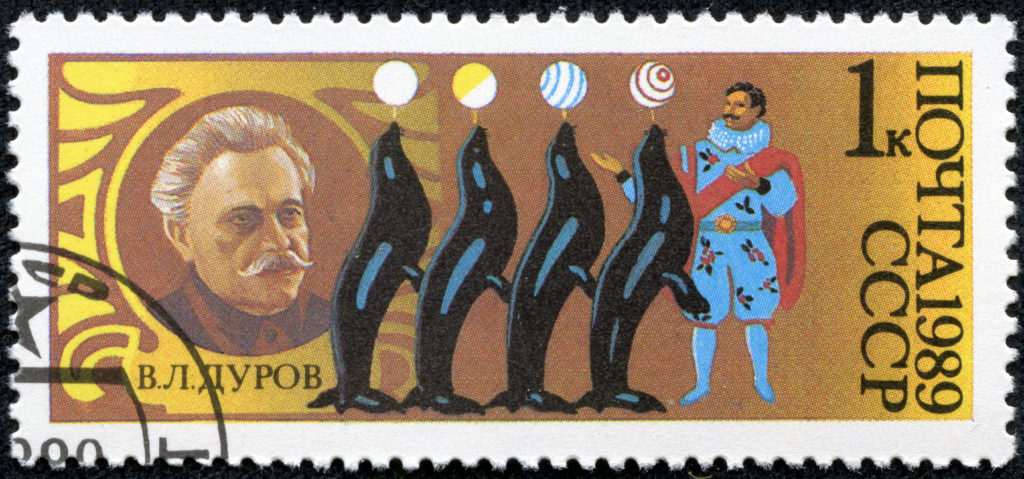Q & A with Author Carolyn Kay Brancato
What Prompted You to Write The Circus Pig and the Kaiser: A Novel?
Some years ago and in connection with my “day job” as an economist, I met Professor Wassily Leontief, a Nobel Laureate in Economics. Like many Russians, Leontief loved the ballet and theatre arts and was interested in the work I was doing in theatre. It was he who told me the story of a famous Russian circus animal trainer named Vladimir Leonidovitch Durov, who founded a dynasty of circus performers which persists to this day in Moscow. According to Leontief, in Russia, the clown is often the only person in society who can tell the truth – much like the fool in Shakespeare’s plays.
Durov was performing in a traveling circus in Germany in 1907 when Kaiser Wilhelm II was gearing up for a major war effort. Seeing the extremely elaborate uniforms the Kaiser ordered for himself and his troops, Durov dressed his pig up to mimic the Kaiser and trained her to flip a helmet up onto her head while he ventriloquized “Ich Will den Helm” which meant “I want the helmet” but also “I am Wilhelm.” Durov was arrested for sedition and thrown into prison, although eventually allowed to return to Russia.

“Russian Stamp Showing Animal Trainer Vladimir Durov”
How Did You Develop the Character of Durov?
I relied on extensive research to create the world of the Russian circus at the beginning of the 20th century. Durov became famous for training animals without relying on cruelty and that became the central feature of his character. I further developed the characters of Durov, his younger brother and other circus performers at an Ensemble Studio Theatre retreat held at Tannersville, New York, led by the playwright Cassandra Medley. Cassandra directed us in free-writing exercises in the mornings, we would write scenes in the afternoons and actors would perform them in the evenings.
The initial play I wrote was performed at the Church Street Theatre in Washington, D.C., as part of a festival of plays on the theme of Freedom of Expression. Some years later, working with developmental editor Diane O’Connell, I adapted the play and expanded it into a novel.
Madcap Characters
I had the most fun totally free associating with characters like Boris the clown. He wants to be a magician like his late father, but was born too short to wear his father’s robe – he’s convinced that the reason is because his father was sawing his mother in half when she was pregnant with him.
I developed my circus family by reading about the Moscow circus tradition, life in Russia under the Tsar and the hierarchy of circus performers and workers…all this provided a rich array of material.
How Does the Issue of Artistic Freedom Relate to The Circus Pig and the Kaiser: A Novel?
Freedom of Speech and Artistic Freedom have always resonated with me and now more so than ever. Leontief told me firsthand how things were in Russia and it left a major impression on me. Also, my father was in the military during World War II and stationed in Germany when the wall went up.
I can think of no more important aspect of our democracy that the ability to speak, write and create freely. And, when you can combine these sentiments in a kind of farcical atmosphere that isn’t didactic, but rather is hopefully entertaining, then I think you can really drive home the importance of these issues.
As writers and artists, we are fortunate to be able to work in this kind of atmosphere…at least for now.


Perfectly indited articles, regards for selective information. Flori Asa Hughes